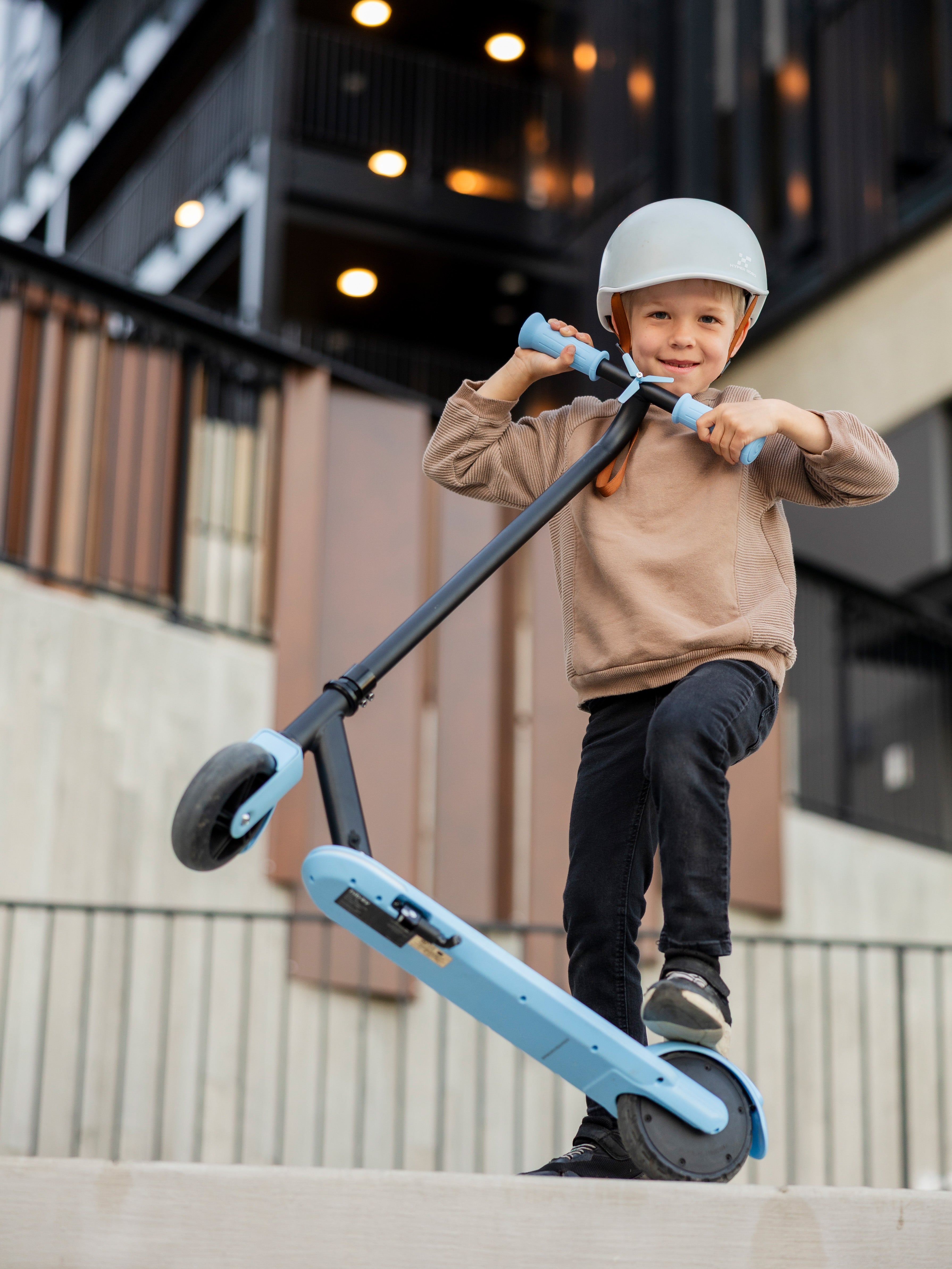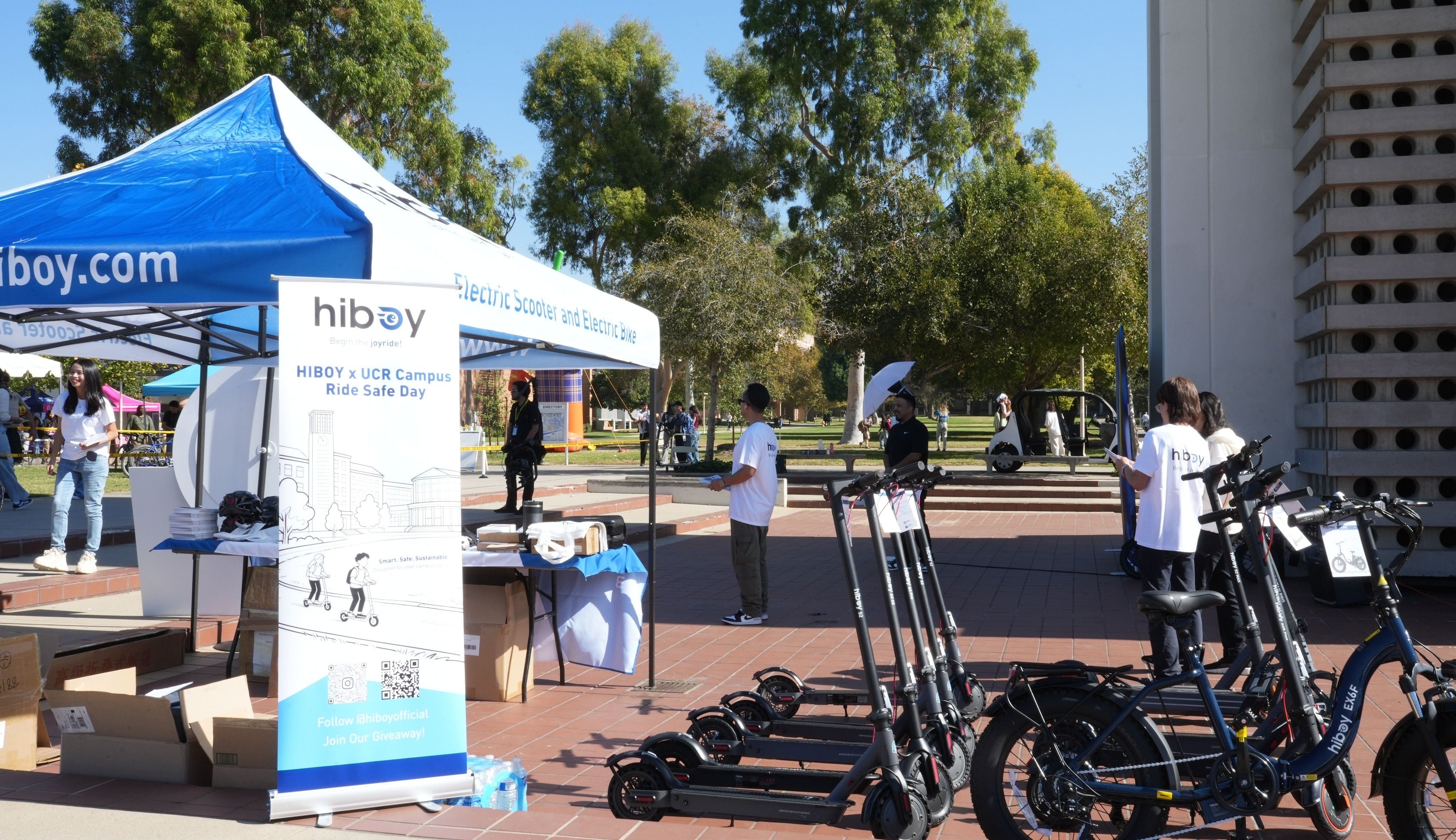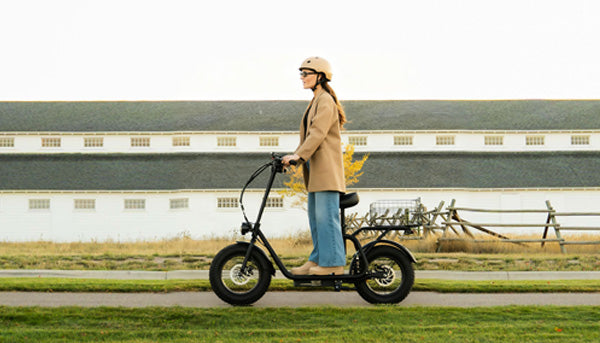
At HIBOY, safety isn't just a slogan, it's a core value that drives everything we do. We believe that only safe and reliable products can earn the trust and support of our customers. That's why we've invested millions in obtaining UL certification for all of our products, demonstrating our unwavering commitment to your safety.
UL is a world-renowned safety science organization that sets rigorous standards for product safety. By meeting these standards, we choose to have our products tested directly by UL, ensuring the accuracy and unbiased nature of the results, including UL2272 for our electric scooters, UL2849 for our electric bikes, and UL2271 for our battery packs, giving you the peace of mind you deserve.
HIBOY prioritizes exceeding the highest safety standards, not just in New York City, but also in all regions where we operate. Our UL-certified products surpass local regulations, reflecting a dedication to delivering unparalleled quality and superior safety. We believe our unwavering commitment on safety will differentiates HIBOY in the marketplace, securing a sustainable competitive advantage.
FAQs
UL 2272 and UL 2849 are both safety standards developed by Underwriters Laboratories (UL), a global independent safety science company. They focus on the electrical systems of personal electric mobility devices:
- UL 2272: Standard for Electrical Systems for Personal E-Mobility Devices. This standard applies to all powered mobility devices, including e-scooters, hoverboards, and similar products.
- UL 2849: Standard for Electrical Systems for eBikes. This standard is specific to electric bicycles (e-bikes), which are bicycles with integrated electric motors that can assist with pedaling.
Both UL 2272 and UL 2849 address electrical safety concerns, including:
- Risk of electric shock during charging
- Potential for electrical fires
- Overall electrical system integrity
These standards help to ensure that personal electric mobility devices are safe for consumers to use. They are becoming increasingly important as these devices become more popular around the world.
In December 2022, the U.S. Consumer Product Safety Commission (CPSC) urged manufacturers, retailers, importers, and distributors of micro mobility devices to comply with UL 2272 and UL 2849. New York City also requires all powered mobility devices sold within the city to comply with UL 2272.
UL 2271 is a safety standard developed by Underwriters Laboratories (UL) specifically for lithium-ion battery packs used in light electric vehicles (LEVs), including electric scooters, e-bikes, and hoverboards. It aims to ensure the safety and reliability of these batteries, reducing the risk of fires, explosions, and other potential hazards.
Here's a breakdown of key features of UL 2271:
-
Applies to diverse LEV battery packs: It covers battery packs of various sizes, voltages, and configurations used in LEVs.
-
Rigorous testing: Battery packs must undergo extensive testing to evaluate their electrical, mechanical, thermal, and fire safety performance.
-
Cell and pack-level assessments: Both individual battery cells and the complete pack are evaluated for potential safety issues.
-
Compliance with applicable regulations: UL 2271 incorporates relevant international and regional regulations for battery safety.
- Third-party certification: Similar to UL 2849, UL 2271 certification is voluntary but increasingly important for manufacturers, especially for market access and consumer confidence.
1. Enhanced Safety: These standards are designed to address and minimize potential hazards associated with electric mobility devices and batteries. They establish rigorous testing procedures for electrical, mechanical, thermal, and fire safety performance, ensuring the devices and batteries are reliable and less prone to accidents or malfunctions. This translates to a safer riding experience for users and reduced risk of injuries, fires, and explosions.
2. Increased Public Confidence: By meeting these standards and obtaining UL certification, manufacturers demonstrate their commitment to safety and quality. This instills public trust in their products, making consumers more confident and willing to embrace electric mobility.
3. Compliance with Regulations: Many regions globally are implementing regulations for electric mobility devices and batteries. Standards like UL 2271, UL 2272, and UL 2849 often align with or exceed these regulations, ensuring compliance and facilitating market access for manufacturers.
4. Competitive Advantage: In a growing electric mobility market, safety is a key differentiator. Products with UL certification demonstrate a higher safety commitment, giving manufacturers a competitive edge and attracting safety-conscious customers.
5. Insurance Benefits: Some insurance companies offer lower premiums or better coverage for electric mobility devices with UL certification, further incentivizing their use and promoting safe practices.
6. Promoting Sustainable Growth: By prioritizing safety through these standards, the electric mobility industry can foster responsible growth and long-term sustainability. This helps address concerns about safety and potential risks, paving the way for wider adoption and positive environmental impact.
- Check for visual signs:
- Look for the UL certification mark on the product itself, packaging, or user manual.
- Ensure the mark is clear, complete, and hasn't been tampered with.
- Search the UL database:
- Visit the UL website (https://www.ul.com/ ).
- Enter the product name or model number in the search bar.
- If certified, you'll find information including the certificate number and scope of certification.
- Contact the manufacturer or retailer:
- Directly inquire with the manufacturer or retailer if the product is UL certified.
- Request a copy of the UL certification document for verification.






 S2
S2
 KS4 Pro
KS4 Pro
 MAX Pro
MAX Pro



 Light-Weight & Portable
Light-Weight & Portable
 Long Range
Long Range
 For Heavy Riders
For Heavy Riders
 Big Wheel
Big Wheel
 With Seat
With Seat
 Fast
Fast




 EX6
EX6
 P6
P6
 C1
C1

 S2 Lite
S2 Lite
 DK1
DK1
 BK1
BK1

 Q2 Lite-A
Q2 Lite-A
 ES-1
ES-1









Leave a comment
All comments are moderated before being published.
This site is protected by hCaptcha and the hCaptcha Privacy Policy and Terms of Service apply.